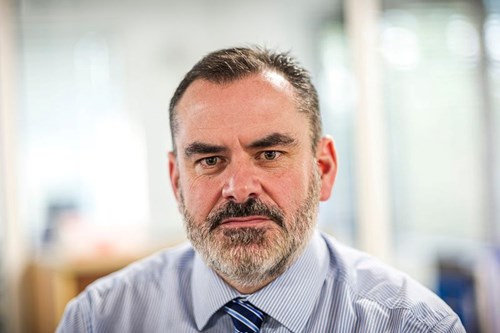Devon and Cornwall Police Federation speak out about the effects lengthy IOPC investigations can have on officers
26 January 2021

Protracted investigations into the conduct of police officers can leave them in a state of “psychological torture” - often leaving colleagues physically broken and their families in turmoil.
Devon and Cornwall Police Federation has spoken out as The Home Affairs Select Committee probes the work of the Independent Office for Police Conduct (IOPC), which launches often lengthy disciplinary investigations on police officers
Some have lasted for more than 10 years.
As part of the Police Federation of England and Wales’s #TimeLimits campaign, the Federation will be giving evidence to Parliament tomorrow (Wednesday) on the detrimental and costly impact of such investigations on police officers, their families and their colleagues.
Richie Poole, Devon and Cornwall Police Federation Conduct Lead, said that that while his colleagues have no objection at being held accountable for their actions, the IOPC and its investigators spend far too long scrutinising their work.
He said: “There are a number of cases within our force that have taken many years to reach a conclusion, only for the officers to be exonerated, and a number that have taken years that are still ongoing.
“What cannot be understated as to not only the psychological effect that this has on the individual under investigation, but also the effect to their partners, their children and their colleagues.
“Once proud, professional and dedicated officers have been left broken by a convoluted process leaving them to flounder, resign from the service or worse, just for doing their job.
“Officers understand that on occasions actions taken need to be investigated – we are the most accountable of public services - but nobody puts on the uniform or carries a warrant card with the expectation that their families, friends or colleagues will be drawn through a lengthy process that can be tantamount to psychological torture.”
Richie said the Independent Office for Police Conduct has shown a willingness to work with the service to improve in recent years, but that a legacy of “distrust” has remained.
He added: “Investigations into police officers are not subject to the same legislative timescales that would apply to an allegation against a member of the public and we are calling for a 12-month limit for those investigations to take place and reach a conclusion.
“It should only be in the extremely exceptional circumstances that this would not be the case and this must be applied to investigations being undertaken by professional standards departments as well as the IOPC.
“On occasions where a case is proven and an individual shouldn’t remain as an officer, it is just as important that these investigations are carried out in a timely fashion and not drawn out longer than is absolutely necessary.
"It must also be borne in mind that the majority of officers under investigation are subject to suspension or restriction, and as such they are unable to carry out their full range of duties.
“This ultimately results in not only a significant extra cost to the taxpayer, but an extra and unnecessary burden on the officer’s colleagues, who under the current climate are already under extreme pressure.
“The longer an investigation takes, the greater damage it causes to the officer, their families and the police service as a whole. It must be in the interests of justice to expedite these investigations and I would urge the Home Affairs Select Committee and IOPC to heed the Police Federation of England and Wales’ submissions.”


















